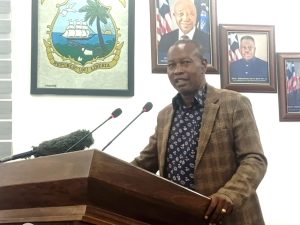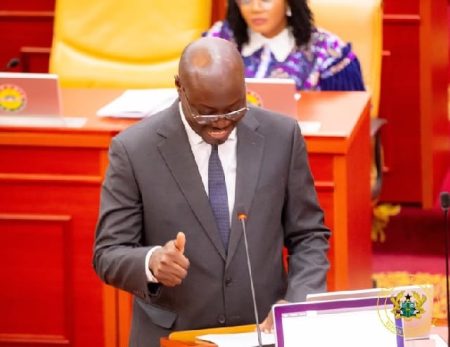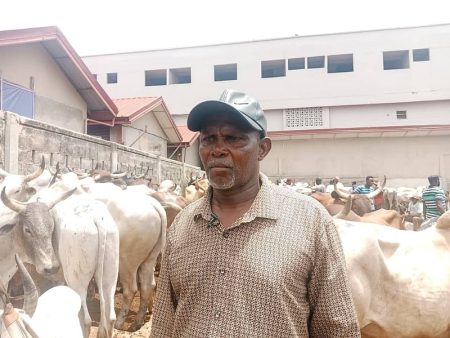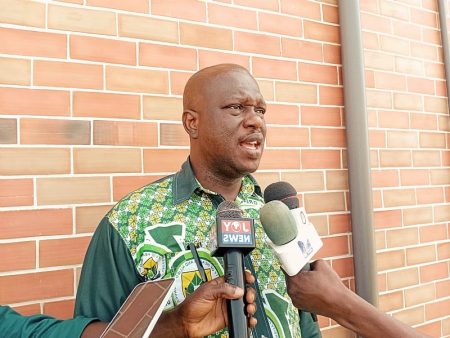The actions of the Minority Caucus in Parliament, specifically their protest at the Economic and Organised Crime Office (EOCO) headquarters, have drawn sharp criticism from Abraham Amaliba, a member of the National Democratic Congress (NDC) legal team. Amaliba characterized the protest, led by Minority Leader Alexander Afenyo-Markin, as an act of lawlessness, arguing that their demands for the release of New Patriotic Party’s Ashanti Regional Chairman, Bernard Antwi Bosiako (Chairman Wontumi), should have been pursued through legal channels rather than disruptive demonstrations. The MPs’ decision to stage a sit-in at EOCO’s premises, Amaliba contended, undermines the rule of law and sets a dangerous precedent for bypassing established legal procedures.
Central to Amaliba’s criticism is the perceived hypocrisy of Afenyo-Markin, who, according to Amaliba, has previously benefited from the very judicial system he now appears to distrust. He questioned Afenyo-Markin’s reluctance to approach the courts in this instance, highlighting a past case where the MP successfully obtained a Supreme Court injunction within a remarkably short timeframe. This apparent inconsistency, Amaliba argued, casts doubt on the sincerity of the Minority’s grievances and suggests their protest was motivated by political grandstanding rather than genuine concern for due process.
Furthermore, Amaliba emphasized the impropriety of attempting to coerce EOCO into changing the bail conditions of a suspect through public protests. He argued that such actions interfere with the independent functioning of state institutions and undermine their ability to carry out their duties impartially. By resorting to pressure tactics instead of engaging with the legal system, the Minority Caucus, according to Amaliba, is setting a detrimental example that could embolden others to disregard established procedures and resort to disruptive actions to achieve their objectives.
The investigation into Chairman Wontumi encompasses serious allegations of fraud, causing financial loss to the state, and money laundering, with potential links to an international organized crime network. These weighty accusations, Amaliba implied, necessitate a thorough and impartial investigation by EOCO, free from external pressures and political interference. The Minority’s protest, therefore, not only disrespects the legal process but also potentially compromises the integrity of the ongoing investigation. He called for respect for the institutions tasked with upholding the law and urged the Minority to channel their concerns through appropriate legal avenues.
Amaliba’s critique underscores a fundamental tension between the roles of parliamentarians as representatives of the people and their obligation to uphold the rule of law. While it is legitimate for MPs to advocate for their constituents and express concerns about potential injustices, Amaliba argued that this advocacy should be conducted within the framework of the legal system. By resorting to disruptive protests and attempting to influence the decisions of law enforcement agencies through pressure tactics, the Minority Caucus, in his view, risks undermining the very institutions that are essential for a functioning democracy.
The incident highlights the importance of upholding the principle of separation of powers and respecting the independence of state institutions. Amaliba’s condemnation of the Minority’s actions serves as a reminder that even elected officials are not above the law and must adhere to established legal procedures when seeking redress or expressing dissent. He urged the Minority to reconsider their approach and engage constructively with the legal system, allowing the investigation into Chairman Wontumi to proceed without undue influence or interference. He stressed the importance of maintaining public trust in the integrity of state institutions and the rule of law, emphasizing that resorting to extra-legal measures only serves to erode this trust and undermine the foundations of a democratic society.














